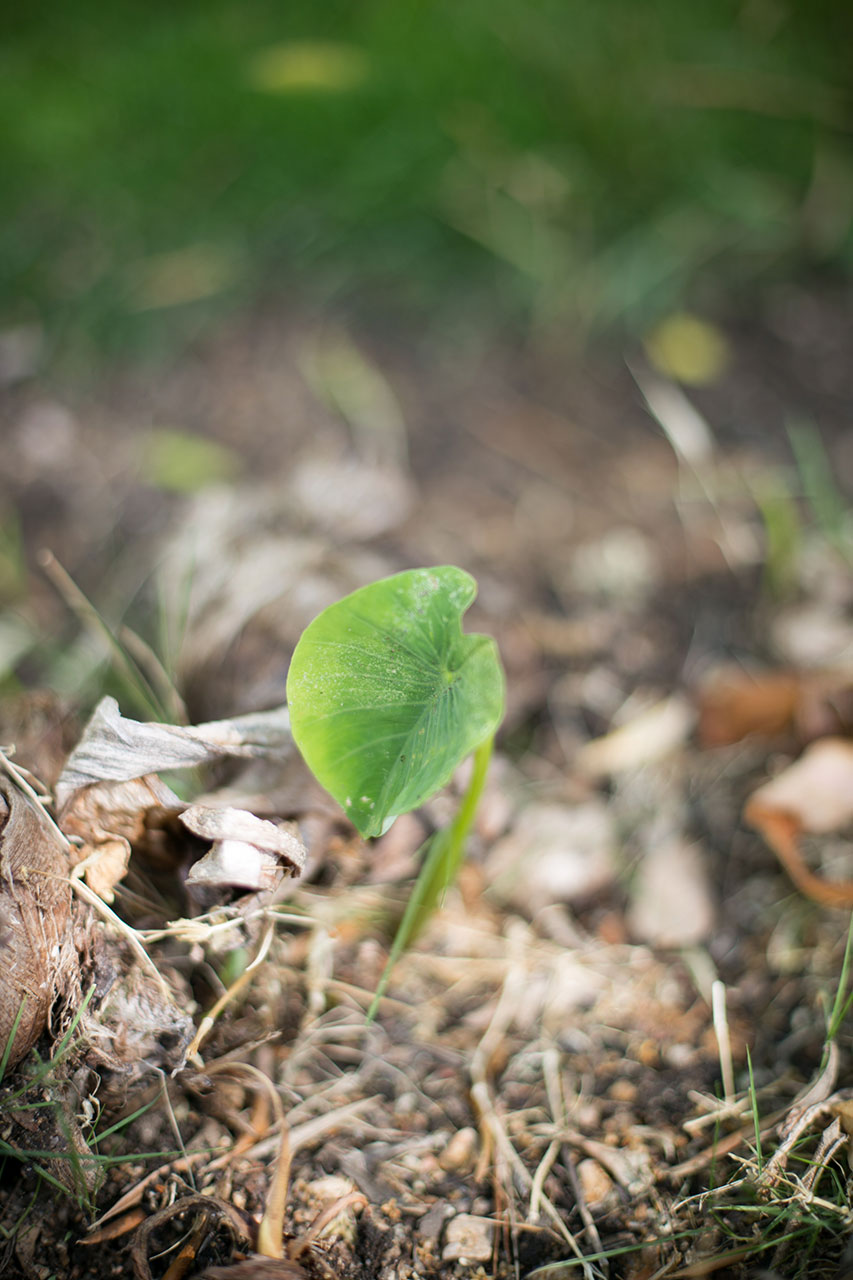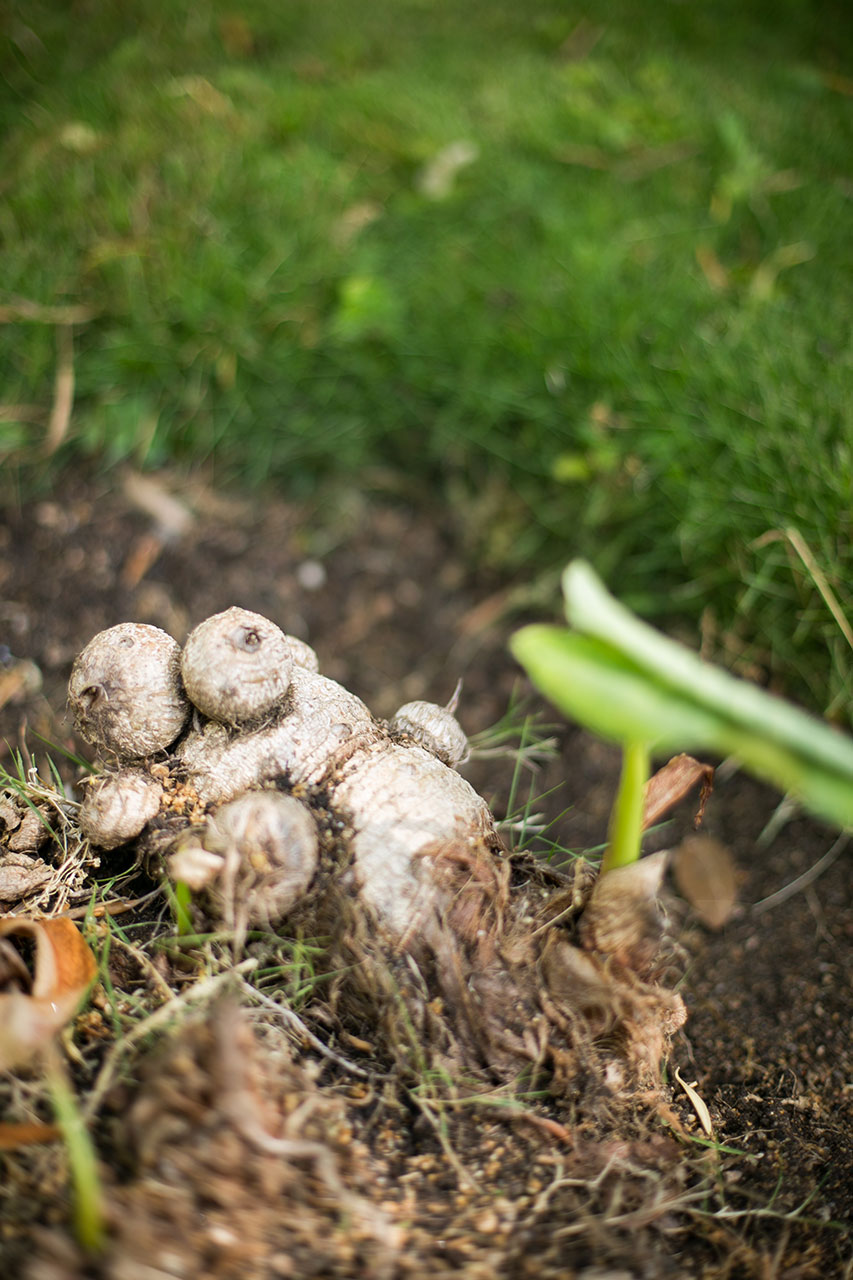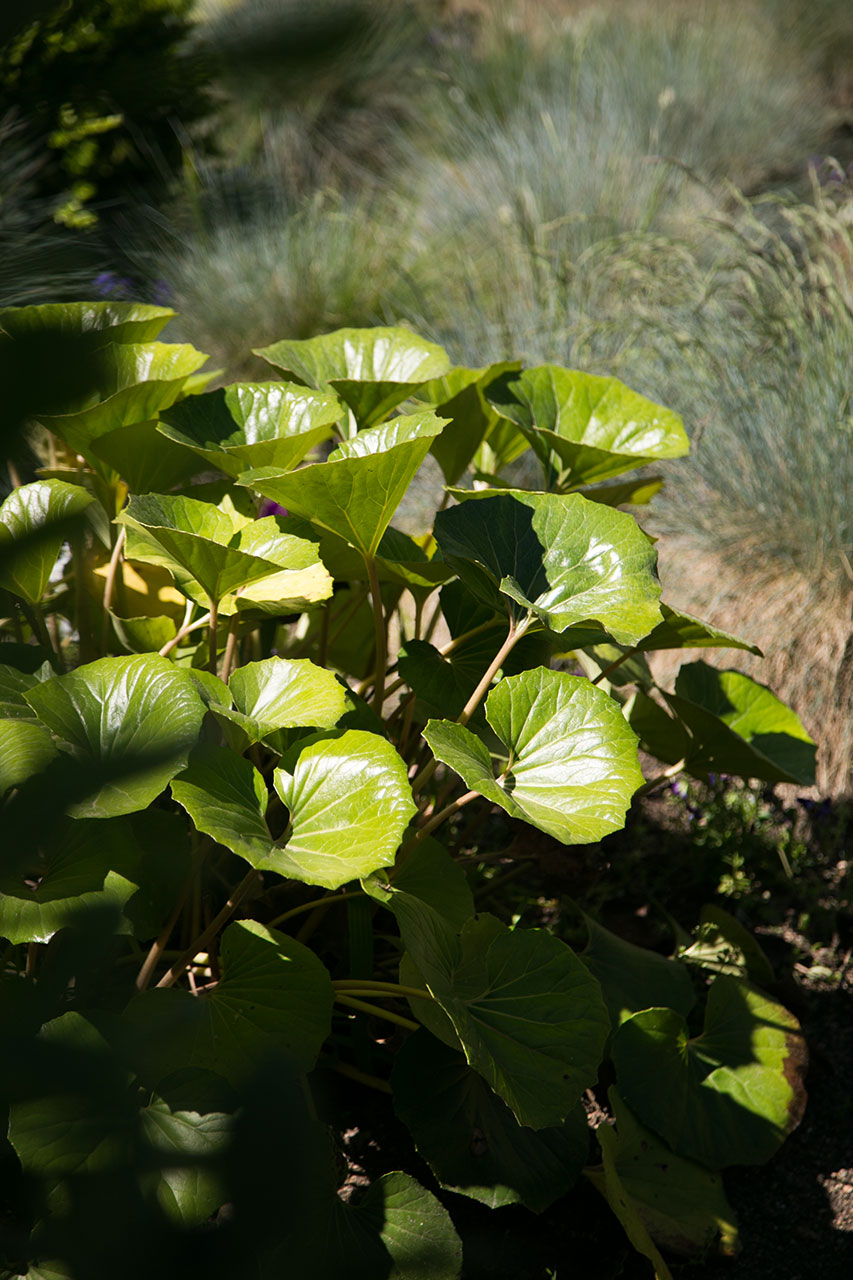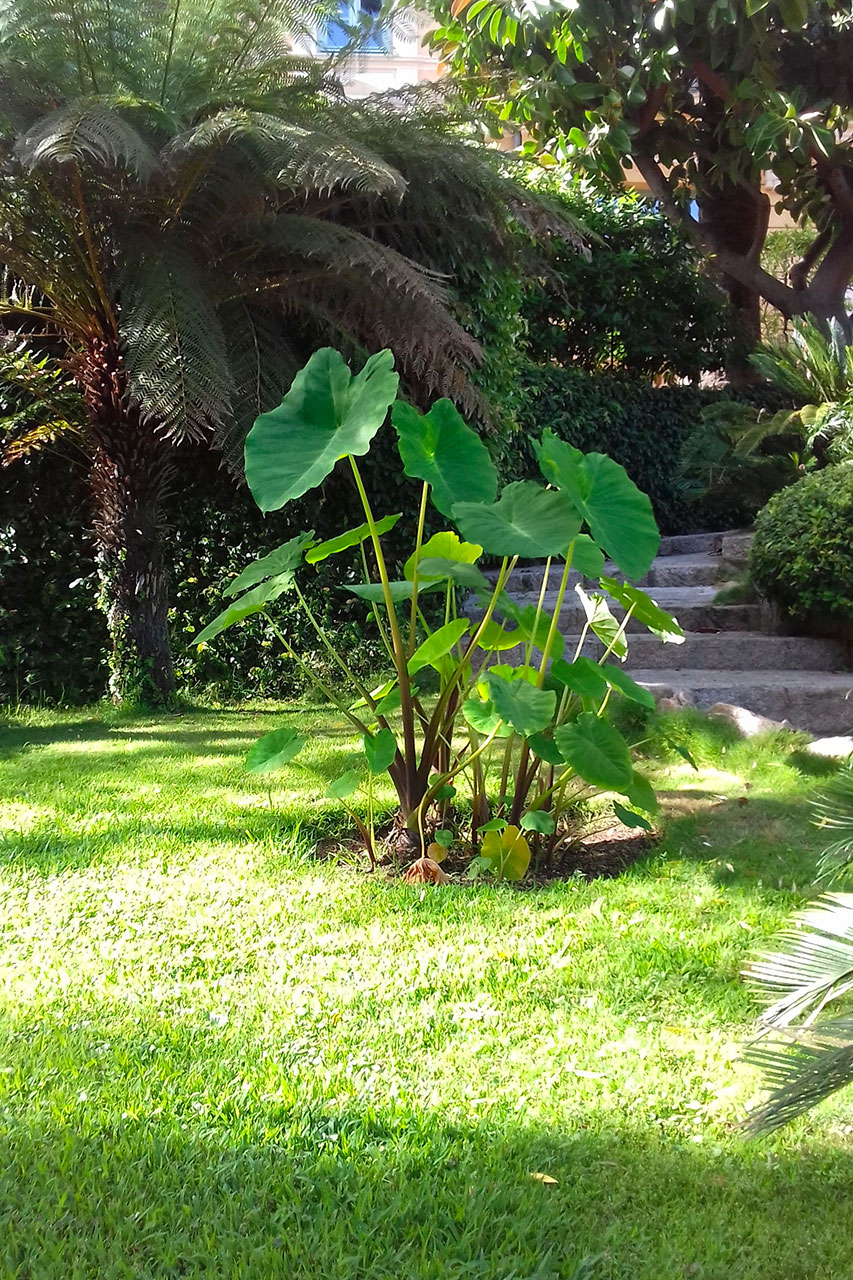
Elephant’s ear
Colocasia esculenta
Le Colocasia esculenta est une plante de la famille des Aracées, généralement connue sous le nom vernaculaire de taro et cultivée dans les régions tropicales pour sa racine épaissie en gros tubercule farineux.
- Common name: Elephant ear, Wild taro
- Corsican name: Colocasia, Arechji d'alifanti
- French name: Chou de Chine, Taro et Oreille d'élephant
Notes
The plant is toxic to both humans and animals. Irritation of the skin characterised by a burning sensation.
Main toxin: Calcium oxalate crystals.
Species characteristics
Family: Araceae
Origin: India, south Pacific.
Habitat: Tropical areas.
Characteristics: Colocasia is characterised by its beautiful broad leaves. The leaves, from 0.5 to 1 m in length, are found at the end of an upright stem up to 2 m long. These leaves are perpendicular to the stem: their surface is oriented outwards and the tip points to the ground. The leaves are smooth, green, heart-shaped or arrow-shaped.
Flowering period: Quite rare, tiny, fragrant flowers from cream to pale yellow in colour.
Uses and properties: Staple food plant in Asian countries, Oceania, the Pacific and South America. The tubers are rich in nutrients (starch and potassium) and are eaten cooked.
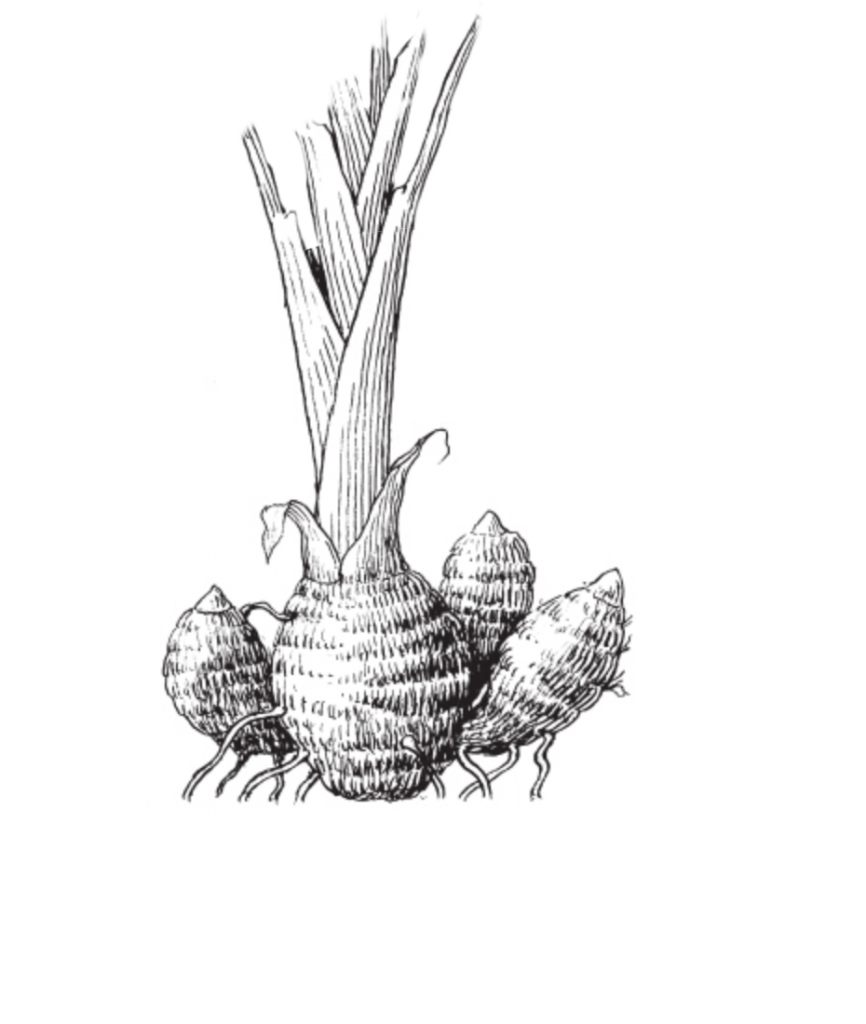
History and oddities
Though its above ground part is toxic, its bulb, on the other hand, has been eaten for centuries by Asian peoples.

